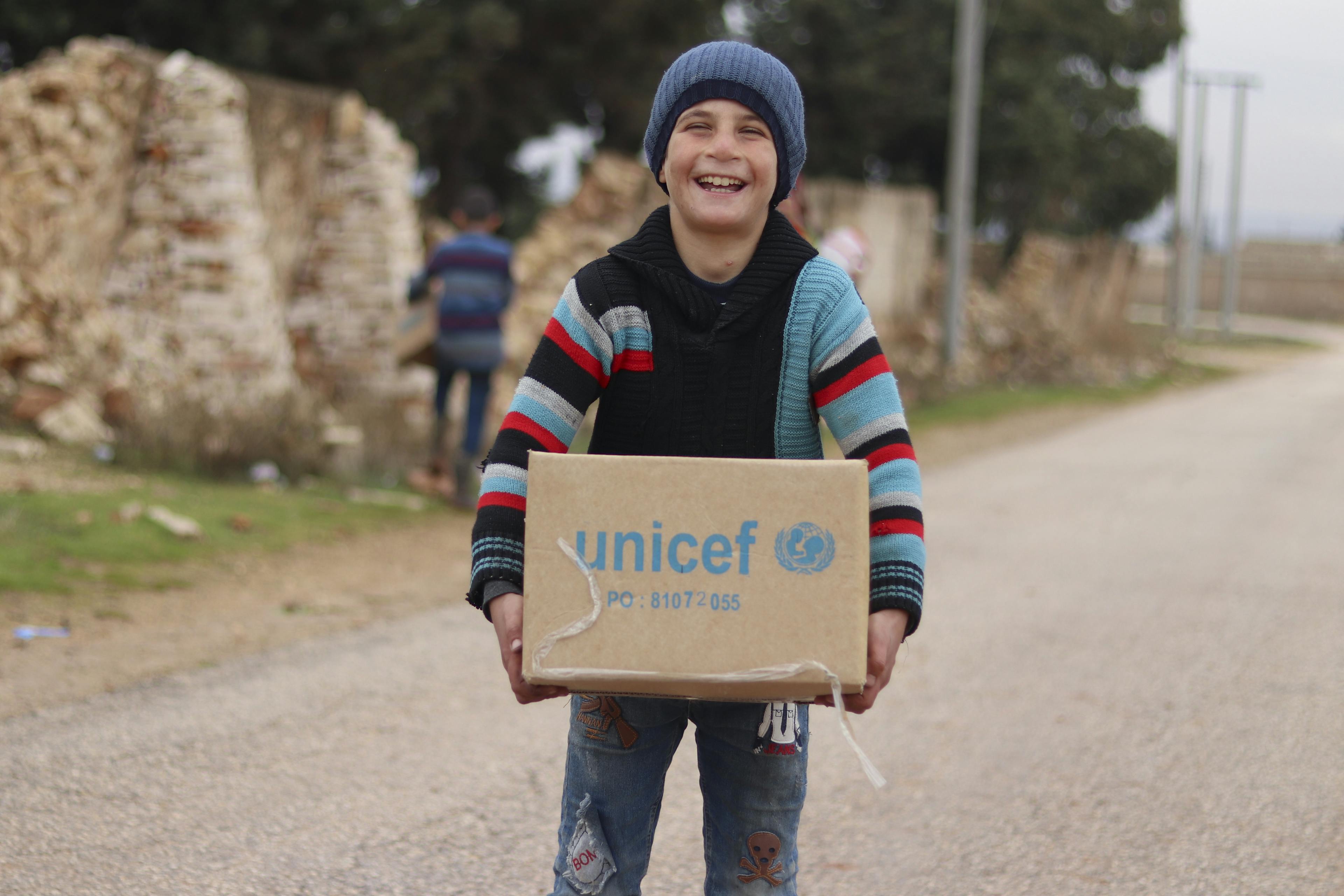
Emergencies
Home
Our Work
Emergencies
UNICEF prepares, responds, and helps build back after emergencies strike - to protect our children.
We make sure every moment counts - when it matters most. With our established global network of supply hubs and partners we're able to rapidly respond to any emergency with life-saving supplies.
Thanks to generous UNICEF donors we can get clean water, vaccines, medical supplies, and treatment for malnutrition & illness to kids and families most in need - anywhere in the world - in under 48 hours.
412
humanitarian crises were each met by a tailored UNICEF response in 2024.
17.7
million
million kids and young people accessed education in emergencies in 2023.
2.9
million
families in emergencies reached with cash transfers for essential items in 2023.

How your donations help
Conflict, climate change, natural disasters & food crises
When a crisis strikes, we're already there. In the wake of war and disaster, children and their families lose their homes, schools and often loved ones. Their access to food, water and health care is affected, and many kids are left vulnerable to abuse.
With a presence on the ground in 192 countries we can quickly determine the immediate needs of the most vulnerable and hard to reach communities so we can provide rapid life-saving support and begin their recovery.
When food became scarce in Yemen and across the Horn of Africa, we were there to provide kids with nutrition and health care. When schools were destroyed in Syria, we set up tented classrooms. When kids in Ukraine braved shelling and explosions through constant blackouts and water-less winters, we repaired water systems, set up generators and provided warm clothing.
Building back better
We respond to over 300 emergencies every year - though meeting the immediate needs of kids isn't our only priority. We holistically develop innovative and long-lasting solutions so that the impact of conflict and disasters won't prevent kids and their communities from enjoying a happy, healthy tomorrow.
In 2022, an earthquake in Afghanistan devastated rural homes, villages and lives while putting increased pressure on already struggling health, nutrition, hygiene and education services. Read below to see how we responded immediately and stayed on the ground long after the headlines faded.
Because we've been on the ground in Afghanistan for over 70 years, we were able to quickly help these disconnected communities recover from disaster and continue our work to build back a future filled with hope!

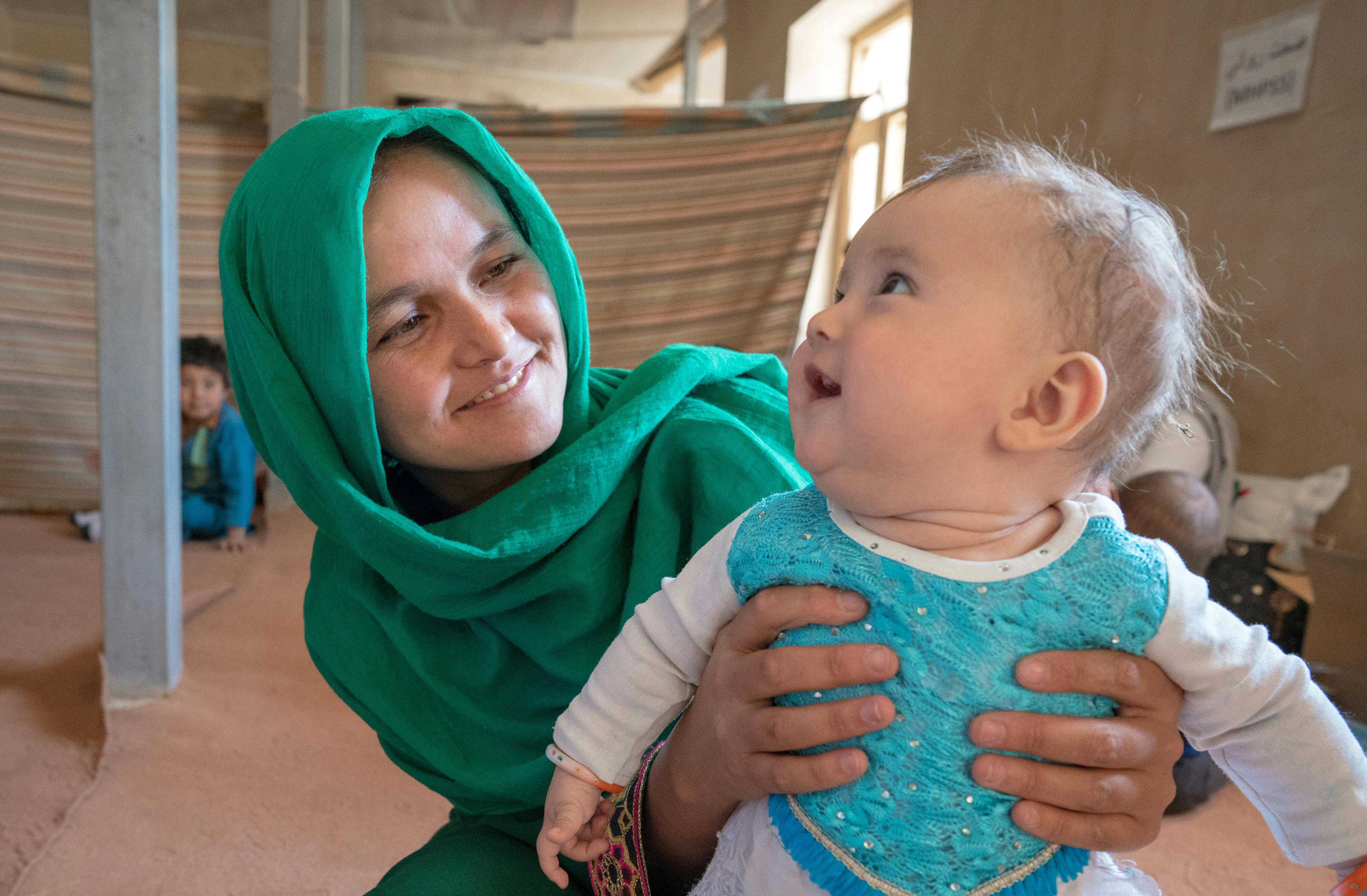
Healthcare
Our mobile health teams in Afghanistan help kids in remote areas overcome malnutrition. We'll keep promoting good nutrition and strengthening health services to prevent malnutrition altogether!
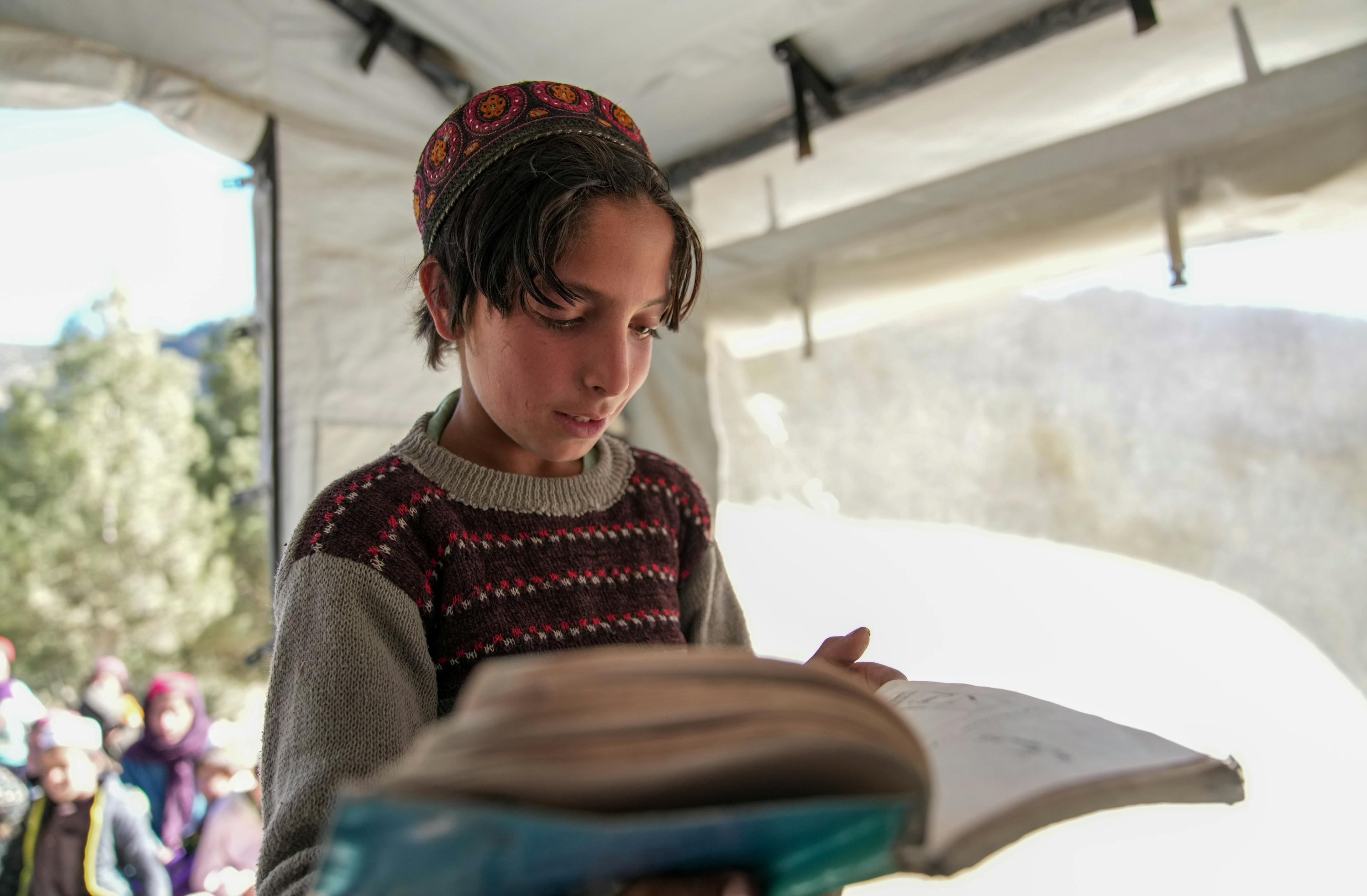
Education
Community based classrooms in disconnected villages help kids continue learning. UNICEF will advocate to get all children back in school – for as long as it takes!
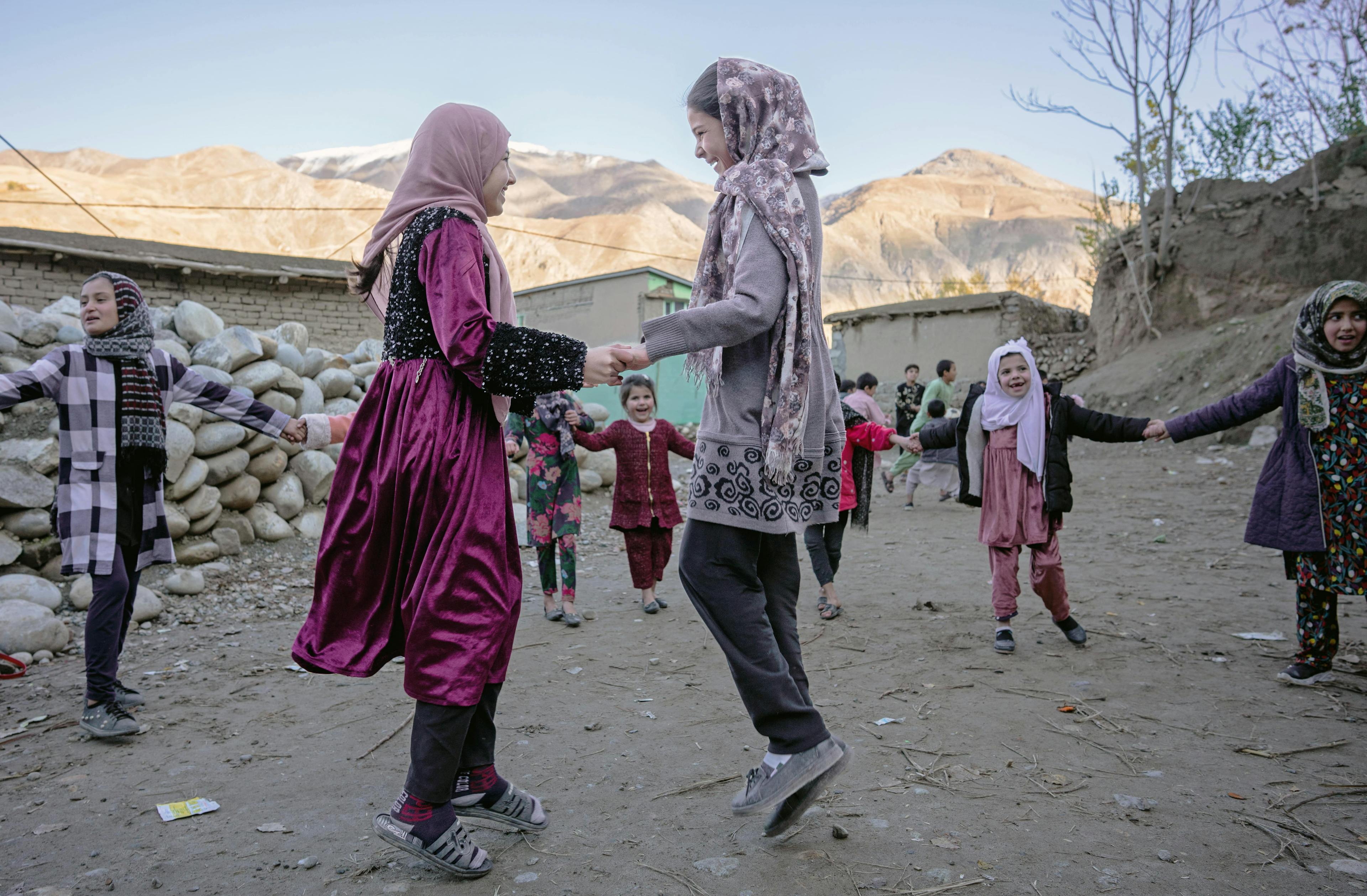
Safe Spaces
UNICEF child-friendly spaces are set up to help kids laugh, play, and process the trauma of disaster and the ongoing conflict. We'll continue to scale up these services to help kids find a sense of normalcy.
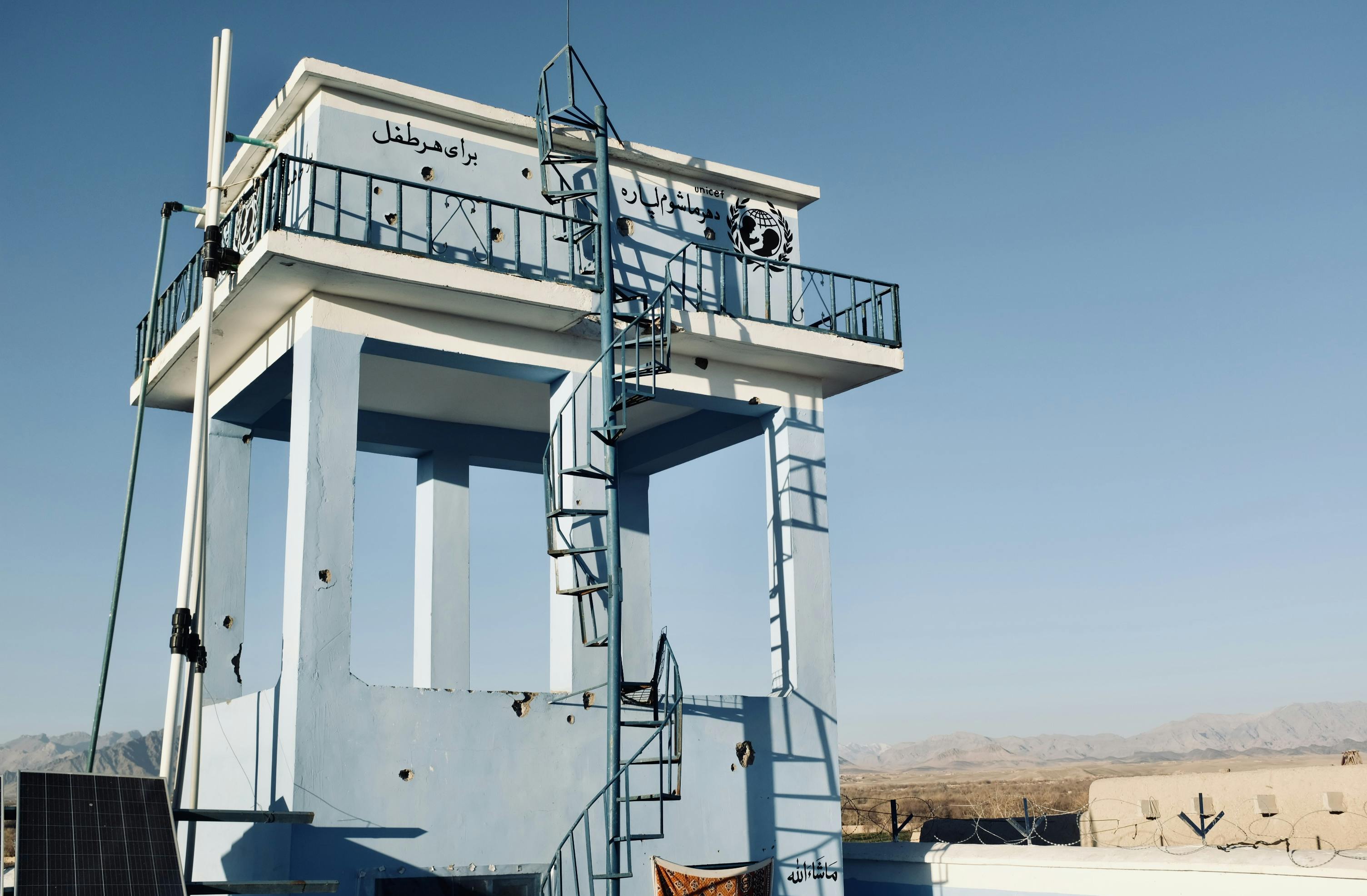
Water
We quickly trucked water to earthquake affected villages without nearby water sources. Our solar water towers provide a sustainable and long-term water source to hundreds of thousands of people in the drought-stricken South Afghanistan - with more towers under construction as we speak!
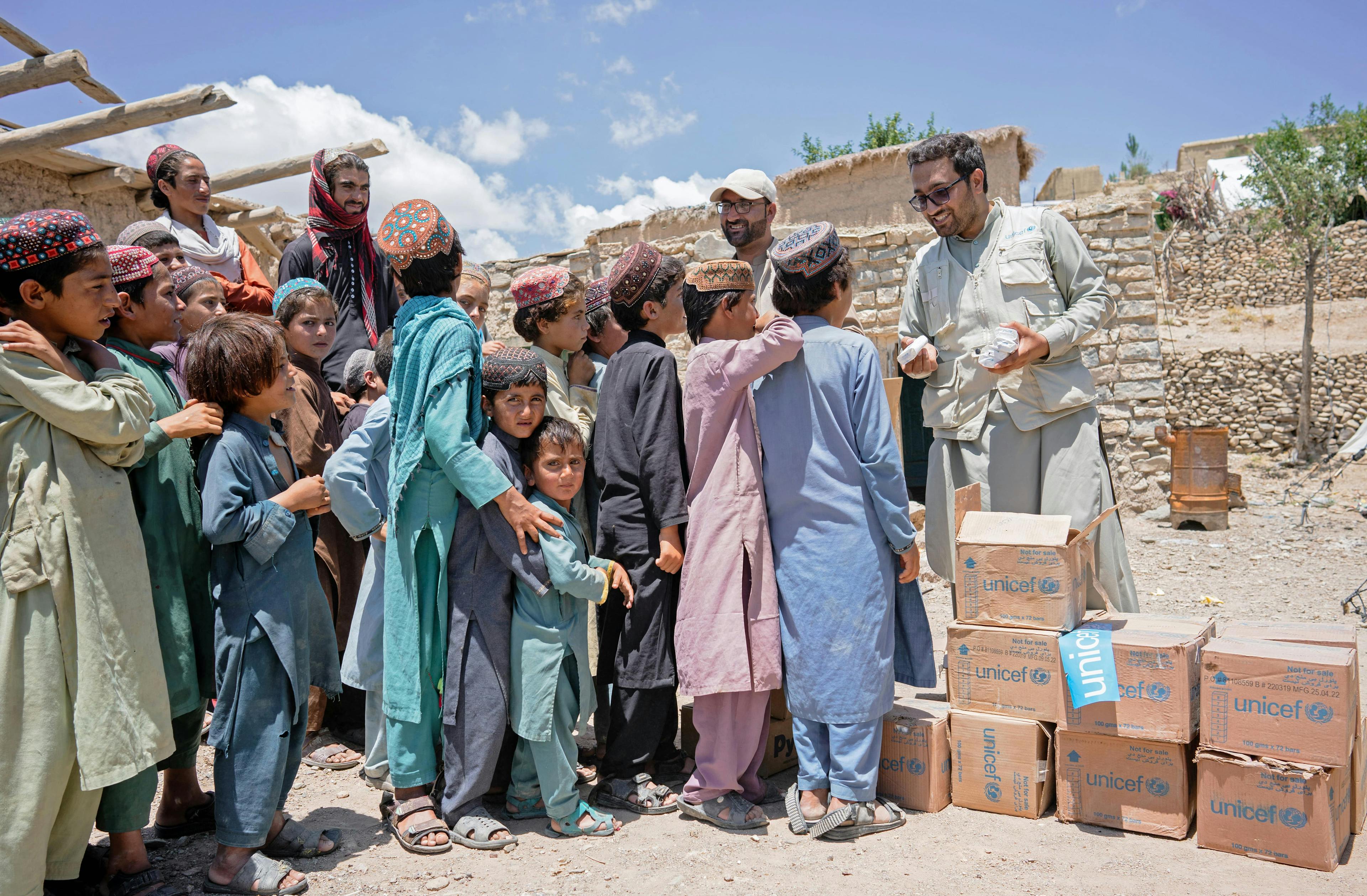
Sanitation & Hygiene
Prepositioned hygiene supplies were sent within hours of the earthquake. We're scaling up the rehabilitation of water, sanitation, and hygiene services to be more resilient in the face of disaster.


When you donate to help UNICEF respond to an emergency, your support reaches children fast and lasts long after the headlines fade.
A changing landscape
In a world where current humanitarian emergencies take prolonged turns, and new crises are constantly emerging, there will always be major challenges for supply chains that have been weakened by the pandemic, shipping delays, rising inflation, and soaring energy prices.
But when disaster strikes, we're a few steps ahead!
With a presence in 192 countries, we're already there to jump into action with pre-positioned supplies. Our presence also affords us a greater understanding of the country, culture, needs and local partners - keeping us ahead of a rapidly evolving landscape and ensuring essential supplies reach children as quickly as possible. Being agile and adaptive is everything in an emergency!
No matter the obstacles, we'll never stop delivering hope to kids!
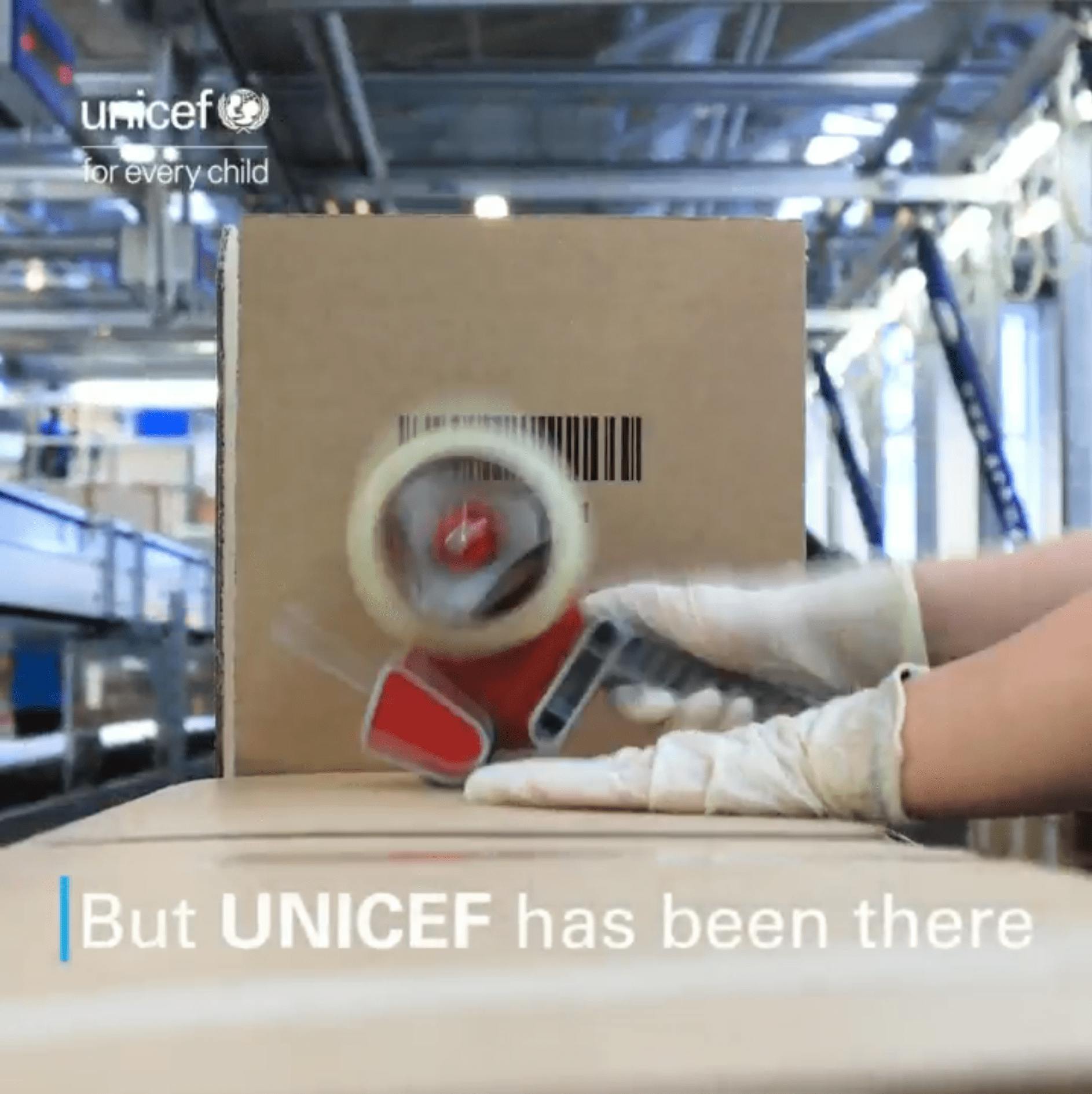
UN0755270


The beating heart of UNICEF
See where it all begins!
At the centre of UNICEF's rapid response journey are our supply hubs around the world! Ready to ship our life-saving pre-positioned supplies at a moment’s notice.
Take a look around our Global Supply and Logistics Hub in Copenhagen which is over 60 years old! That's 60 years of reaching kids around the clock and around the world.
Our supply hubs around the world tactfully coordinate responses to emergencies and help accelerate the rights of children through access to essential supplies.
This is how we get supplies around the world
in under 48 hours!
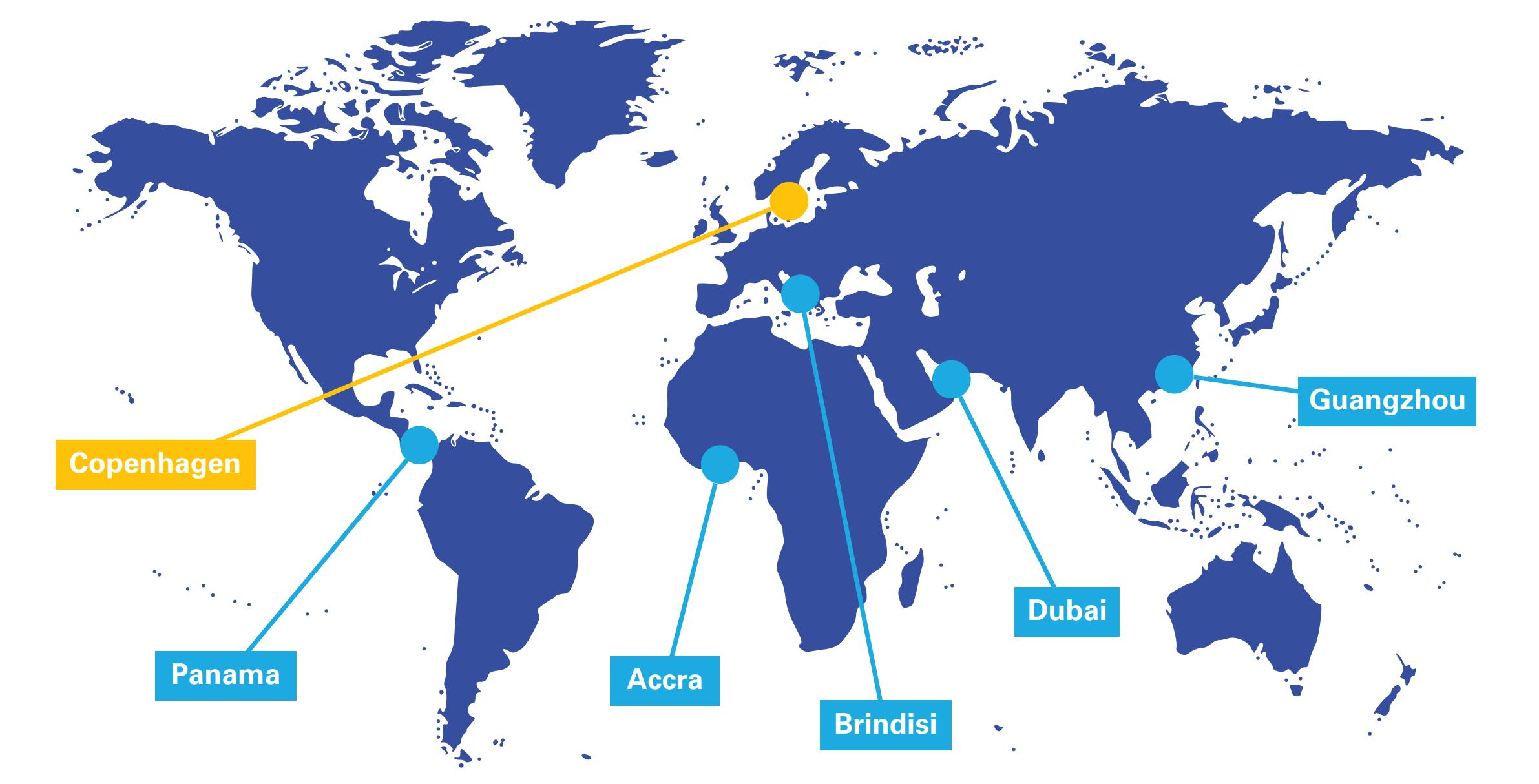
Hear more stories about our Emergency work around the world!

War has come to my house
On February 24th, 2022, Tetyana was woken by a phone call warning her that Russian attacks had escalated in Ukraine. By the third day, 80 Russian tanks had surrounded their neighbourhood.
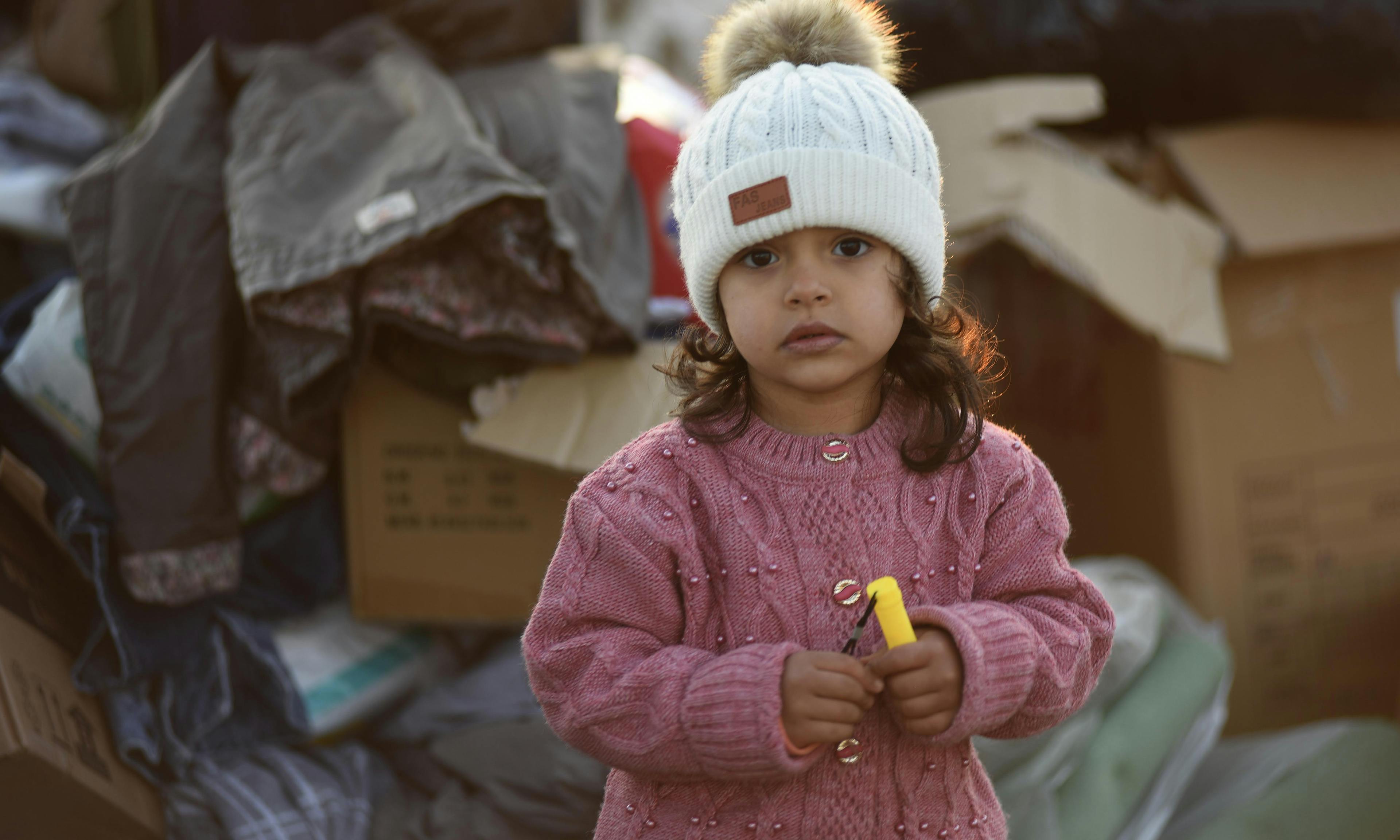
UNICEF's humanitarian response in earthquake affected regions of Türkiye and Syria.
One month after devastating earthquakes in Türkiye and Syria, millions of children need continuing humanitarian support.

100 days after Türkiye and Syria earthquakes
100 days after the deadliest earthquakes in Türkiye and Syria's recent history, 2.5 million children in Türkiye and 3.7 million in Syria are in need of continued humanitarian assistance.

